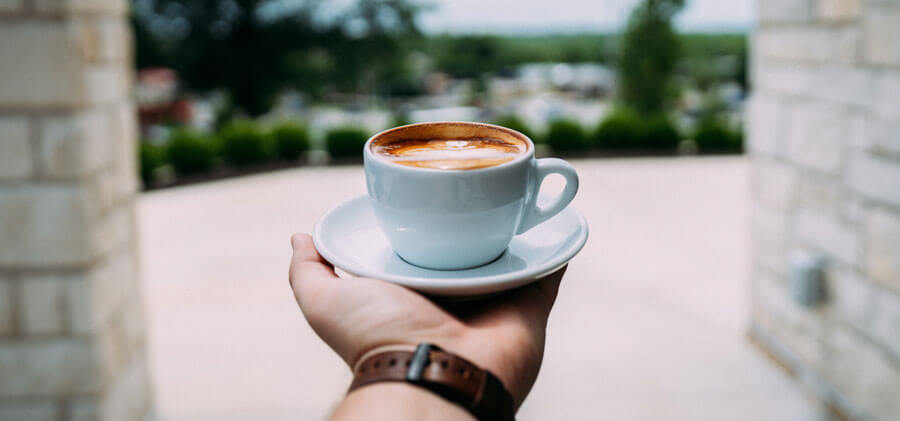6 ways to make a better cup of coffee at home
Lianne Moreno
At its core, preparing a good cup of coffee is a pretty straightforward task. When making a great cup, there are some essential steps to consider besides choosing the right coffee beans and coffee maker.
Here we have some fantastic tips on improving your coffee making.
It's easier than you think.

1 Always use fresh whole beans.
A great cup of coffee starts with the quality of the beans. The beans' quality is mainly based on the freshness or time passed since they were roasted. It is said that beans are at their freshest the first three weeks after their roast date.
Unlike other vegetables and fruits, this doesn't mean you cannot still use the beans. The beans will still be okay for brewing, yet the final product will lose the flavor's intensity.
Whenever you buy coffee beans, always check the coffee roast date, usually mentioned by the coffee roasters on the packaging. Note that some bigger coffee roasters, i.e., Starbucks or Lavazza, will not put their roast date on the coffee bags at retail locations or supermarkets. These roasters do this mainly because some coffee beans will take months to consume after roasting.
Don't forget to check your beans' freshness or, more importantly, directly order from your favorite roaster. Most likely, smaller coffee roasters, like La Vela, roast the coffee per order and guarantee fresh beans with every order!
2. Store your coffee beans properly.
Once you get your fresh beans, you need to follow one small step to keep the freshness peak and air out. Therefore, we always suggest that our customers store their coffee beans in air-tight containers. A glass, opaque or ceramic jar that keeps air out and flavors in will do.
If you are looking to keep the beans from use a little longer, another method is freezing them. although this isn't the suggested method, here are a few tips to follow when doing so:
- Freeze them in small quantities.
- Unfreeze the beans that you want to use only.
- Do not refreeze the unfrozen beans.
- Avoid condensation; this can alter the beans' profile and ruin your coffee.

Photo by Najib Kalil on Unsplash
3. Grind your coffee beans right before brewing
Did you know that grinding your coffee speeds up the process of the coffee bean's deterioration? This doesn't mean that the coffee will spoil; however, the flavor profile declines faster once the bean is in its ground form. Therefore, it's highly recommended to grind the coffee right before brewing your coffee.

4. Grind your coffee correctly.
We always suggest that our clients grind their coffee and grind it correctly. This promises maximum freshness and allows them to explore different brewing methods. However, it is essential to understand how the different grinds interact with the water and the correct coffee grind for your preferred brewing method.
Going too thick or too thin on the coffee grinds can alter your coffee drastically. A fine grind will over-extract the coffee and add bitter notes to your final drink. While too coarse of a grind will under-extract the coffee and give you a bland drink. Therefore, it is crucial to understand what size grind you will need for your coffee making.

Photo by Tyler Nix on Unsplash
5. Water quality is essential.
Water is undoubtedly one of the primary ingredients in your coffee. Most cups of coffee are actually at around 90% water. For that reason, You should know the water quality, and its taste will follow through onto that cup of coffee. It is recommended that you use lightly filtered water with no strong preference.
Also, you should avoid unfiltered, mineral, and strongly filtered water. These waters tend to bring extra flavors or too much or too little extra components that mess with making coffee and, therefore, the final product.

Photo by Manki Kim on Unsplash
6. Use the correct temperature of the water.
Besides using the correct beans, grinds, and water, knowing your water's accurate temperature is essential in the coffee-making process. Coffee is made with a water temperature between 195F to 200F.
Avoid brewing coffee in either too low or too high-water temperature. A too low temperature will under-extract your coffee. While higher temperatures can burn the coffee and add bitter and unwanted flavors.
The best coffee makers are usually set to reach the correct temperature automatically. However, a cheaper machine can have a faulty system, and it is suggested to double-check the accuracy with a thermometer as it is running.




